How do! / 你好 (nĭ hăo) / Namaste / Welcome!
Tuesday the 28th of April 2020 will be a sad day. It is still almost a week away. At 11am, on that morning the U.K. will engage in a minute’s silence to mourn key workers who have died during this pandemic. Backed by UNISON, the Royal College of Nursing and the Royal College of Midwives all should join the tribute at 11am. So, on International Workers’ Memorial Day, I will bow my head at 11am local time and 11am U.K. time.
At least 112 health care and key workers have died from COVID-19.
Social care workers.
Doctors.
Nurses.
Surgeons.
Specialists.
Porters.
Care home workers.
Others linked to key jobs.
#YouClapForMeNow is and was all over Twitter and other social media. I always will clap and cheer for the NHS. I was born because of the NHS and I have seen a few NHS heroes over the years. You have laid some of my family to rest. You’ve helped them too. You’ve helped my friends. Always loved you all. Even if, doctors do have sh!t handwriting…
The Guardian has been posting notes about the deaths of NHS workers, volunteers and other health workers. There are many entrants on its news page amongst its 91 recorded deaths. The official government figure is that there have been 27 recorded deaths in the NHS. Newcastle Royal Victoria Infirmary Nurse Rebecca Mack was only 29 years old. Watford general hospital Nurse John Alagos was just 23 years old. Essex GP Dr Habib Zaidi was 76 years old. Andy Howe, 48, was a bus driver in Nottingham, simply ensuring that NHS workers and patients could get to and from hospital. 33-year-old Pooja Sharma, a hospital pharmacist died the day after her father had passed away from the same illness. Retired gynaecologist, Hamza Pacheeri was 80 years old. He’d answered the call and returned to treat those with Coronavirus in Birmingham. Born in Kerala, India, he passed away in Birmingham. Grant Maganga in Tameside, Greater Manchester, should be doing his job as mental health nurse. Now he can no longer treat those at Hurst Place. Those who have died in service to healthcare shouldn’t be losing their lives. They’re our protectors. They’re our carers.
I don’t have too many experiences with Doctors and Nurses, thankfully. I was born in 1982 in Crumpsall Hospital, had a hernia operation at an early age in Booth Hall Children’s Hospital, and visited Manchester Royal Infirmary with a cracked leg after doing a cross country run – much to the delight for Dan and Peter Ridyard (I was walking and then I disappeared from view, having fell down an open manhole in a field). Then there was the time I had my nose and eye rearranged by rock, in Scotland Hall Road Park, Newton Heath, but I can’t remember much. I just know it ruined City’s white and maroon away shirt from 1996/97. Oh, and some tick bites… and erm… dentistry… and vaccinations and continuous support as a child. Oh, I do love the NHS – they’ve always been there for me and so many others! The NHS is one institution that I’d love every nation to copy, model and shape as their own. Caring and sharing for the community, at that level needs money and support – and that’s why we pay National Insurance from our wages. I’d pay more for the NHS. Would you?
News round-up: The effects of the virus pandemic are long and wide, with cases of depression up globally, deaths in quarantine, possible surges in case numbers around travelling football fans, former footballers importing masks via crowdfunding, debate over how long to quarantine yourself, and newspapers rewriting modern day history. At least some writers will look to support those who care, invent and make more.
Of course, nothing lasts forever, and much like Man Utd being unable to afford Harry Kane, the world around us will take shape in a new form, if we’re bright and breezy about it. Common sense and recent experience highlight how much the NHS is needed – and costs being cut over the years and closures alike, shows how much it needs a massive future-proofing boost. Things will change. Those who die on the frontline now deserve to be remembered. They should be part of the very fabric of the new era of community healthcare throughout the U.K. Will it happen that way? Only time will tell.
Boris Johnson, applauded nurses and namechecked several immigrant nurses recently. That’s the same cheerer of the Conservatives blocking pay rises of nurses in a Commons vote during 2017. Wouldn’t be nice to have that same vote tomorrow?
“Three hundred thousand, thirty four, nine hundred and seventy four thousand” – Home Secretary Priti Patel reports the number of COVID-19 tests completed, at the Downing Street briefing on the 11th April 2020. She was eleventy-four percent right in the year twenty-twelvety.
These deaths in the NHS and care industries put my own personal problems into perspective. I’m lucky enough to have such small hinderances compared with what the brave frontline of COVID-19 are facing. I just have the small matter (that could affect my future) of not being able to renew my passport.
The British Consulate General Guangzhou do not handle passport matters. All passports are dealt with by HMPO, who have an office in Guangzhou too. Neither are open to the public during this global pandemic. The consular sent an automatic reply as: ‘We will try to get back to you as soon as possible regarding your enquiry. However, if your email relates to consular assistance, passports or visas please see the below information.’ It pointed me to a link that I’d already tried: UK Visa Application Centre. A passport replacement does not count as an emergency situation – and should I get an Emergency Passport it must have the stated journey, dates, booked flights and final destination. However, my passport is water damaged and the ID page is falling out, so maybe it does count towards that… But, it does cost more than a regular passport, and technically I am alright here until July the 31st 2020. However, I have one passport page and before then I will need to review my visa to remain within China…
I could wait for the passport renewal site to come online again. That’d be £95.50 (34 pages) or £105.50 (50 pages) £23.01 for courier fee. Or, I could try to blag an Emergency Passport (and double my costs!). The passport renewal site advises for those in China: “We are currently unable to accept applications from this country. Due to coronavirus (COVID-19), UK visa application centres are closed. We will update this page when the service becomes available.”
My future in teaching now hangs on a tiny thread. It has caused me to really reflect upon the past six years. Why do I like teaching? To see the reward that you can make a young learner jump up their steps of learning at the end is an amazing feeling. I believe with energy, passion and drive, you can infect a child’s ability and will to learn more smoothly and refine their desire to find their chosen interests. You can open so many doors and light a flame for learning. You’re not just a lighthouse for help, you can be a rock and a foundation for a student to develop. You are part friend, part parent and fully a guardian.
I’ve had six years here in China, teaching withing Dongguan’s Houjie and Changping townships. At the end of each semester in Houjie, I’d be sent to cover for teachers in Guangzhou at high school and college levels. One summertime, I had experience teaching a small kindergarten class. Like some schools, my ambition is big. With access to continued learning and opportunity, I feel I can give much more to education and bring something new to a team. Whilst I’ll be a team player, I hope to add my own unique blend of culture and experience to give all a slightly different output. I desperately want to progress as a teacher. If it all goes wrong, I just have to accept it. People are in far worse places.
Many teachers influenced me over the years. I could never choose one great teacher over another, so I’m afraid I will give several key teachers who really influenced me. At Primary School, Mr Andrew Jones stood out. He knew that I’d had it hard in previous years from bullying and I’d been at three primary schools due to my mother moving houses and locations within Manchester. Mr Jones helped other students to include me more and fuelled my growing appetite for reading. As a parting gift before the summer holidays, he gifted me three huge thesaurus books. That was the summer sorted! After he left Chapel Street Primary School, I never did find out where he went. I still want to say, “Thank you kindly!” Miss Roe in primary school was level-headed and offered great support at helping me to self-study, often far ahead of other students and sometimes with books from advanced years ahead. She gifted me an A-Level biology book and I studied it ferociously. Mrs Clegg took my Lego and Micro Machines. The primary school years had seen three schools: New Moston, Clayton Brook and finally Chapel Street Primary School. The dinnerladies of Chapel Street and other teachers along the way guided me.
“If I had my whole life to live over again, I’d make all the same mistakes, only sooner.” – Eric Morecambe, one half of Morecambe and Wise, a famous comedy duo from England.
In my secondary school, the late Mr Tony Mack, really engaged my interest in his English classes. Whilst science and geography firmly held my intended ambitions, words and wordplay were always my passion. Mr Mack gave me added confidence at belief to really play with sentences, structures and be creative. Reddish Vale Secondary School must have seen countless students flow through their doors over many years, I wonder how many students he really pushed on? Further to Mr Mack, in secondary school, Mr Robert Oxley was typical Yorkshire coolness and relaxed attitude, and I think he kind of made me more independent by setting an example at times. I can recall Frau Hodges in my German class having to battle unruly students but being a mighty fine teacher. If only I had focused more. Mr Meheran in later English classes was wonderful and Mr Walker in history was a great teller of stories, but few respected him, because he had a beard. Teenagers are bastards.
But throughout life, my Mum has and always will be my greatest teacher. I haven’t always learned the easy way, but I have always had the support and love of my mother. Cheers Mum!
One for the road – who would I take on board a return train journey along the Cambrian Coast to Aberystwyth from Pwllheli?
One. Marvin Aday (AKA Meat Loaf), singer, songwriter and artist. Any wordsmith and singer could provide entertainment but more importantly, great conversation and stories. Of course, it would be selfish to ask someone along on a cruise, just to give. I think I’d like to suggest he writes a book of poetry, and I would give good reason for this, to him. Also, how cool would a rock and roll interpretation , fused with the local passing scenery be?
Two. Roald Dahl, the greatest author of many children’s books ever. Like Lewis Carol and JRR Tolkein, Roald Dahl had seen action in war, and came back scarred and with stories to tell. Roald was in many ways different to Carol but also similar to Tolkein. He created new words, new phrases and filled his characters with emotions and zest. I suspect his books have influenced a whole batch of young readers who have since been unable to put books down.
Three. Emmeline Pankhurst, the U.K.’s suffragette movement leader. I am a fiercely passionate Mancunian (people of Manchester, England) and I would love to know how Emmeline Pankhurst would look back on her legacy, her family’s influence on present day society and equality. What could she suggest in order to make the world a brighter place now?
Four & Five & Six. Eric Morecambe, Ernie Wise & Eddie Braben. More on them another time…
“On his gravestone): “I told you I was ill.” – Spike Milligan, comedian
I have ambitions to be a novelist, and I know many others share that dream, but I’ve spent two years writing (and now rewriting) a real novel. On top of this, I like writing shorter warm-up pieces and scribbling ideas down for the next novel(s). I love cycling and can be found on the ‘rupture machine’ quite often – or watching the latest Grand Tour race. Then, there is football, which is the perfect embodiment of teamwork, exercise and the British passion for sports. I’m from the city of Manchester, so I had no choice – nor would I change it anyway!
I’m not one to wish to be a typecast, within the I.B.O. (International Baccalaureate Organization) scheme, but I’d slot somewhere between ‘Inquirers’, ‘Thinkers’ and ‘Open-Minded’. My reasoning is because I feel adaptable, accountable and I am forever curious. I respect tradition but equally I will reject it for progression, if it causes no insult or worry to others. I like to think of the causes and effects that change can bring. I don’t believe in change for the sake of change. We must progress sustainably and carefully. The world is so big and there’s only so much we can know, but I’m certain that there is room for more. That’s why I am here, right?
Now
Help
Some(more)



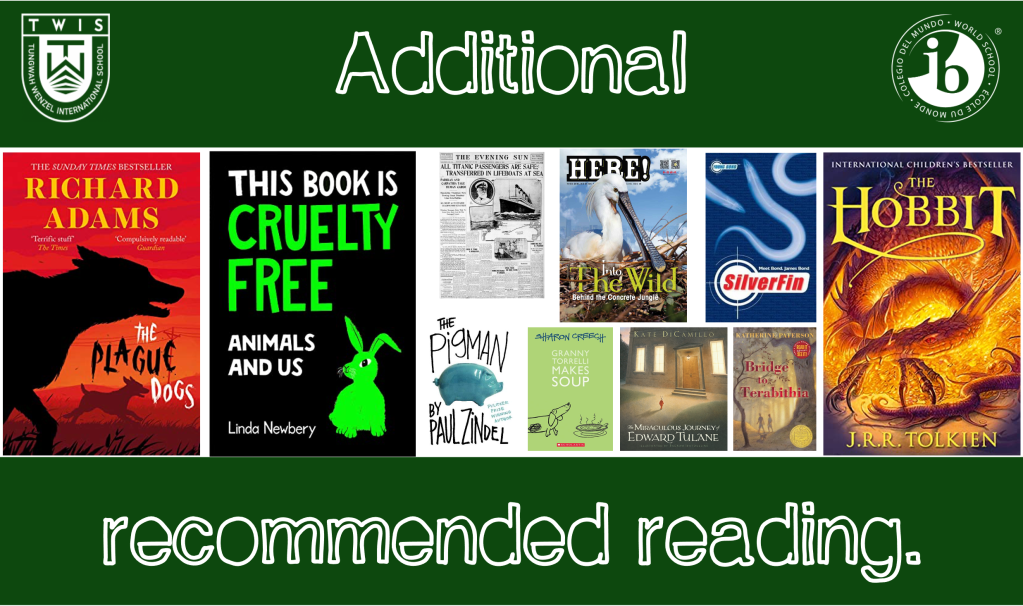
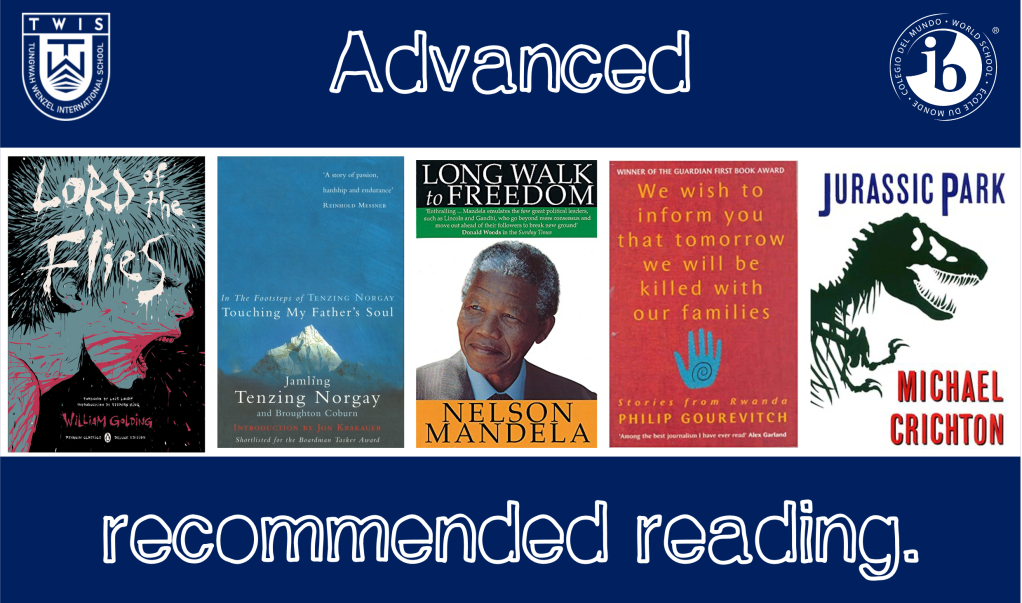

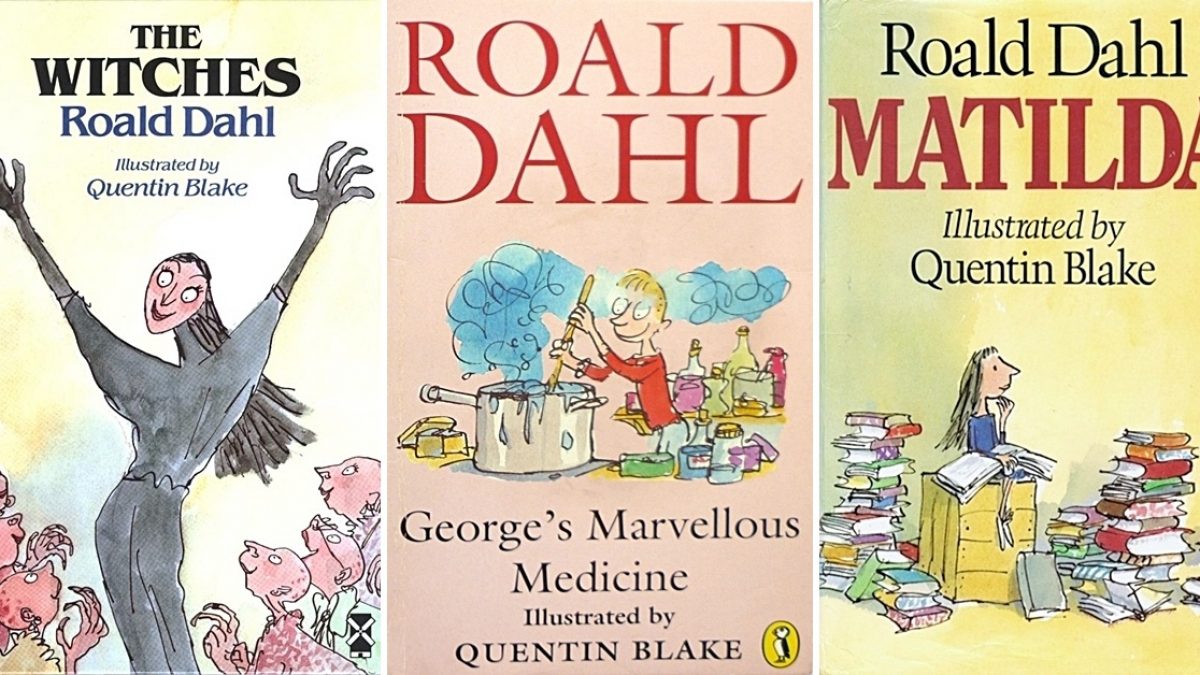
 Looking across the metaphysical divide at female writers, there are some wonderful writers in Mary Shelley (Frankenstein: or, The Modern Prometheus; Rambles in Germany and Italy in 1840, 1842 and 1843), Elzabeth Gaskell (Cranford),
Looking across the metaphysical divide at female writers, there are some wonderful writers in Mary Shelley (Frankenstein: or, The Modern Prometheus; Rambles in Germany and Italy in 1840, 1842 and 1843), Elzabeth Gaskell (Cranford),  In my childhood, my varied reading included Rudyard Kipling’s The Jungle Book; Jack London’s White Fang, The Sea Wolf; Colin Dann’s The Animals of Farthing Wood; Felix Salten’s Bambi; Aileen Fisher’s Now That Days Are Colder; Herman Melville’s Moby Dick; and a set of World Encyclopedias given to me by Mr Andrew Jones, in my final days in class 5AJ.
In my childhood, my varied reading included Rudyard Kipling’s The Jungle Book; Jack London’s White Fang, The Sea Wolf; Colin Dann’s The Animals of Farthing Wood; Felix Salten’s Bambi; Aileen Fisher’s Now That Days Are Colder; Herman Melville’s Moby Dick; and a set of World Encyclopedias given to me by Mr Andrew Jones, in my final days in class 5AJ. As I grew from size 9 shoes to size 12 shoes, I picked up such reads as Eoin Colfer’s Benny and Omar, and soon discovered Michael Crichton. J.R.R. Tolkien was read with vigour. The college years involved
As I grew from size 9 shoes to size 12 shoes, I picked up such reads as Eoin Colfer’s Benny and Omar, and soon discovered Michael Crichton. J.R.R. Tolkien was read with vigour. The college years involved  The second covered a dark period of recent history and journalist
The second covered a dark period of recent history and journalist 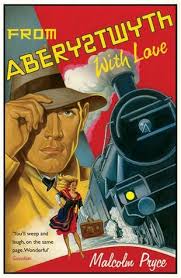 At university I switched into daydreaming mode and the movie popularity of The Lord of the Rings led to a re-read of everything J.R.R. Tolkien. Between daydreaming, textbooks and general procrastination of university work, I found little time for reading. There was always something shiny or distracting. However, I did read through the entire available works of
At university I switched into daydreaming mode and the movie popularity of The Lord of the Rings led to a re-read of everything J.R.R. Tolkien. Between daydreaming, textbooks and general procrastination of university work, I found little time for reading. There was always something shiny or distracting. However, I did read through the entire available works of  Jurassic Park had been on and off my bookshelf since my mother bought me an omnibus edition, with the novel Congo included. The distinctive movie red, yellow and black logo made for great artwork but within the text was something more appealing. Scientific facts mixed with imagination and fiction. Like every book I have read by the late Michael Crichton, there are technical descriptions crossing the genres of action (
Jurassic Park had been on and off my bookshelf since my mother bought me an omnibus edition, with the novel Congo included. The distinctive movie red, yellow and black logo made for great artwork but within the text was something more appealing. Scientific facts mixed with imagination and fiction. Like every book I have read by the late Michael Crichton, there are technical descriptions crossing the genres of action ( Following university, I dipped in and out of books like rain lashing the rooftops of Manchester.
Following university, I dipped in and out of books like rain lashing the rooftops of Manchester.  In China, I have been limited to the works of
In China, I have been limited to the works of  My obsession with Mount Everest has drawn me to a related selection of books. I read most of these in the shadow of the mountain during January 2017. The following works were all written following the 1996 disaster in which many climbers and sherpas lost their lives.
My obsession with Mount Everest has drawn me to a related selection of books. I read most of these in the shadow of the mountain during January 2017. The following works were all written following the 1996 disaster in which many climbers and sherpas lost their lives.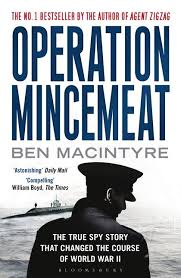 Since that rambling holiday to Nepal, I have picked up
Since that rambling holiday to Nepal, I have picked up